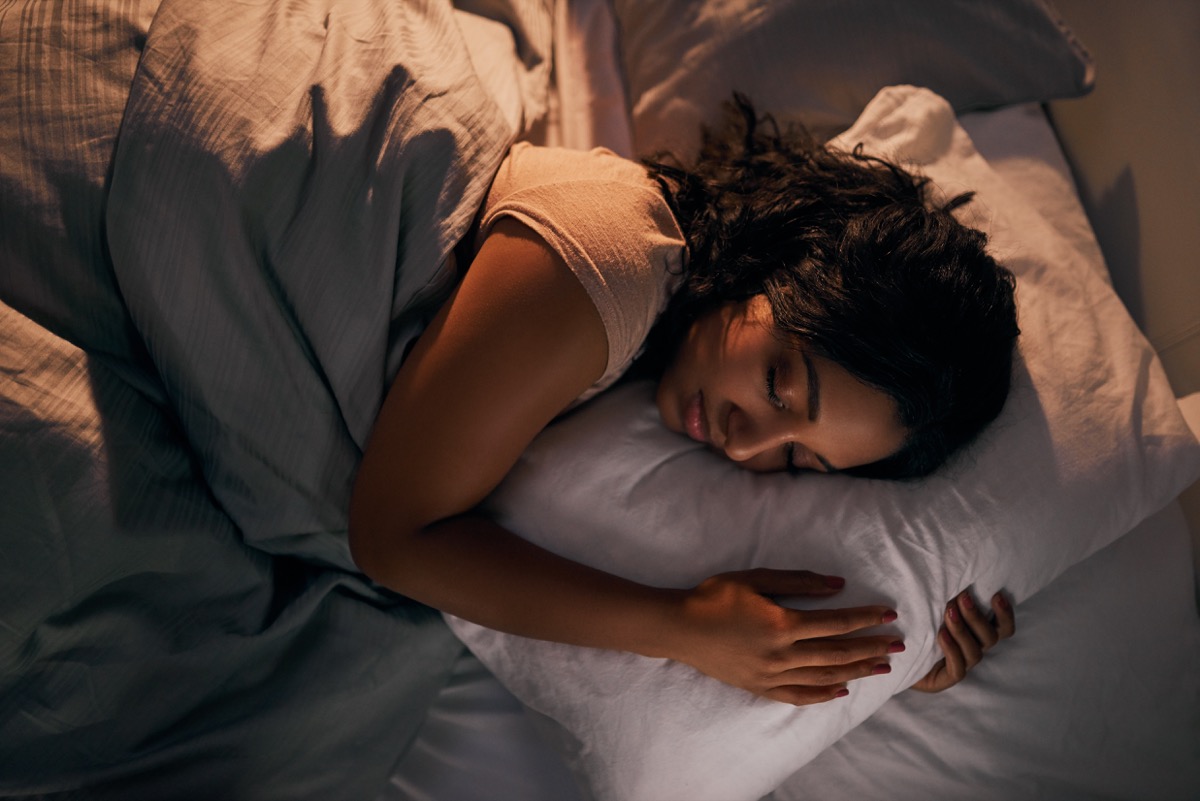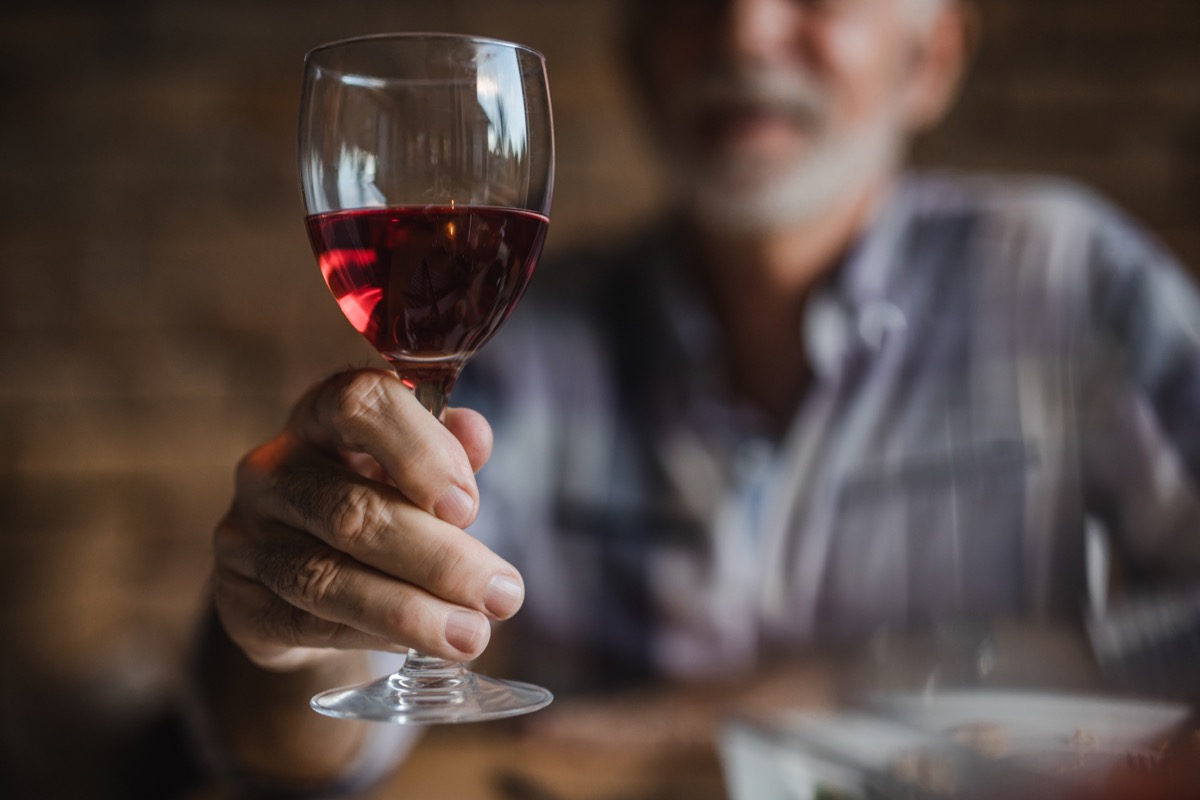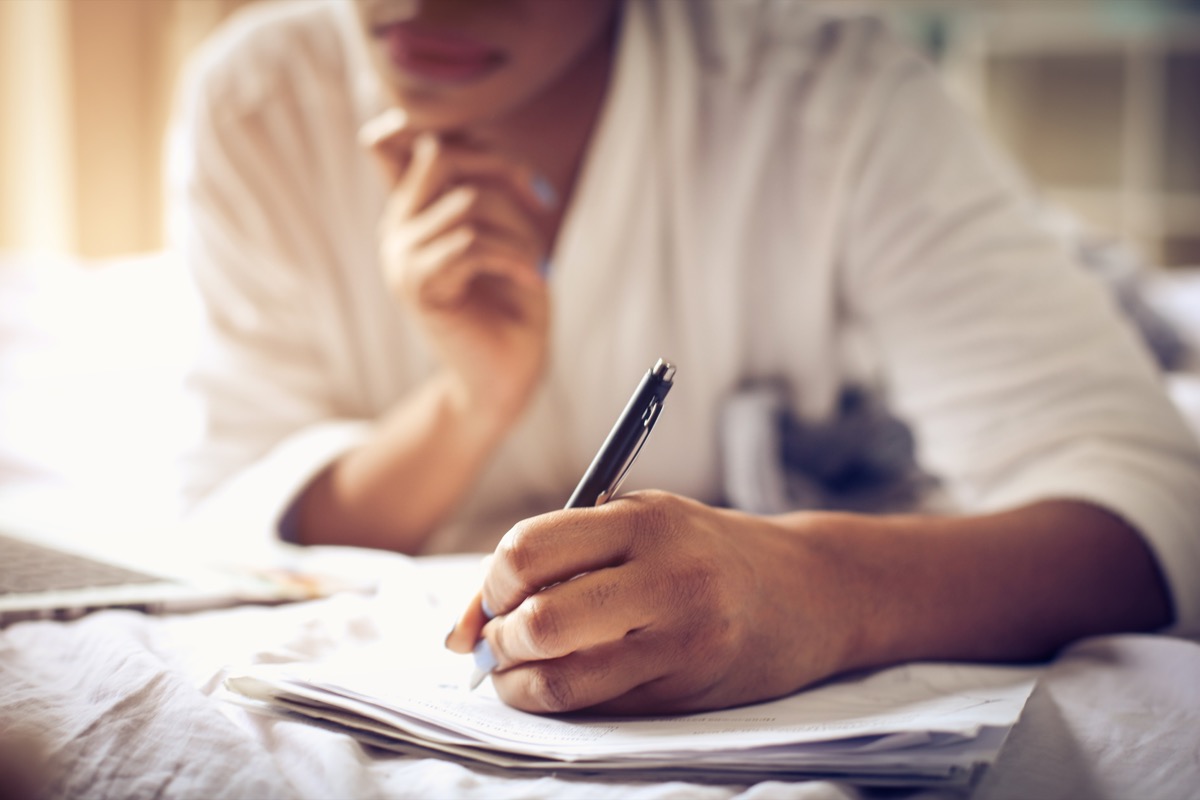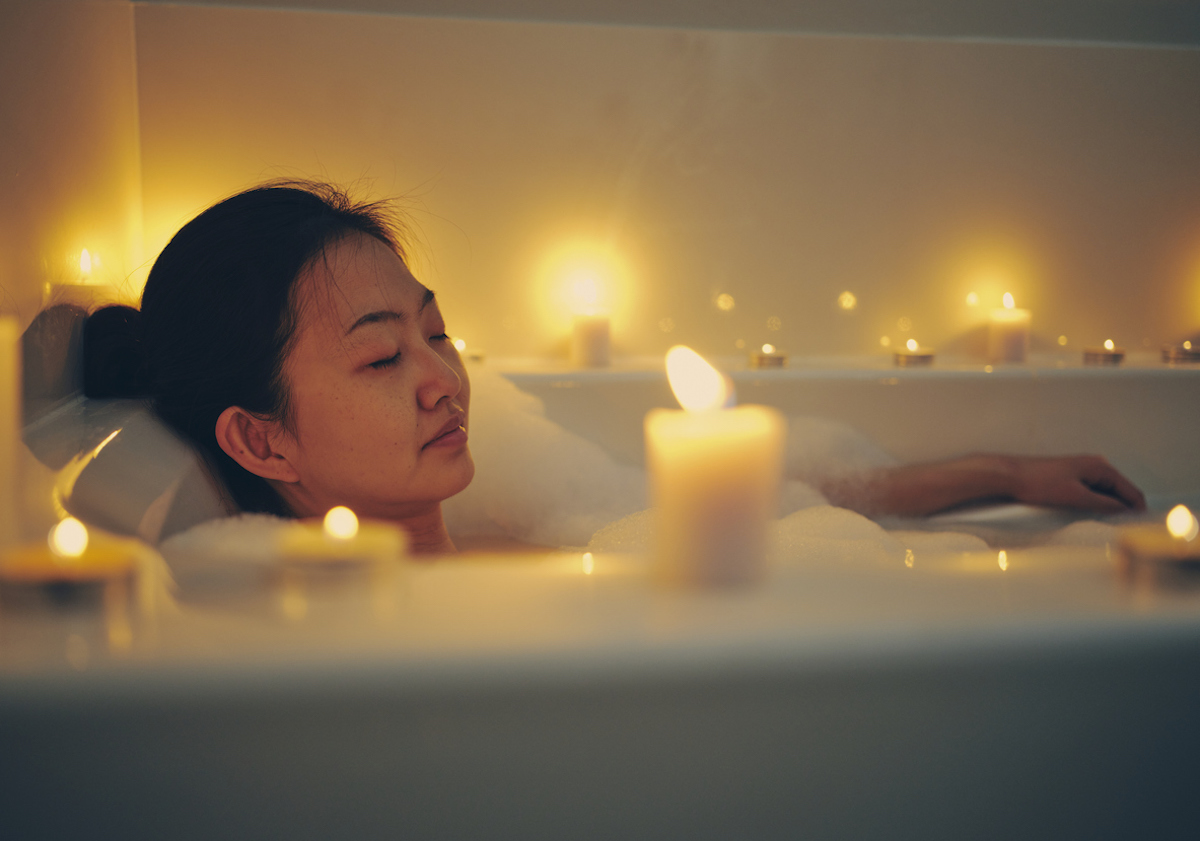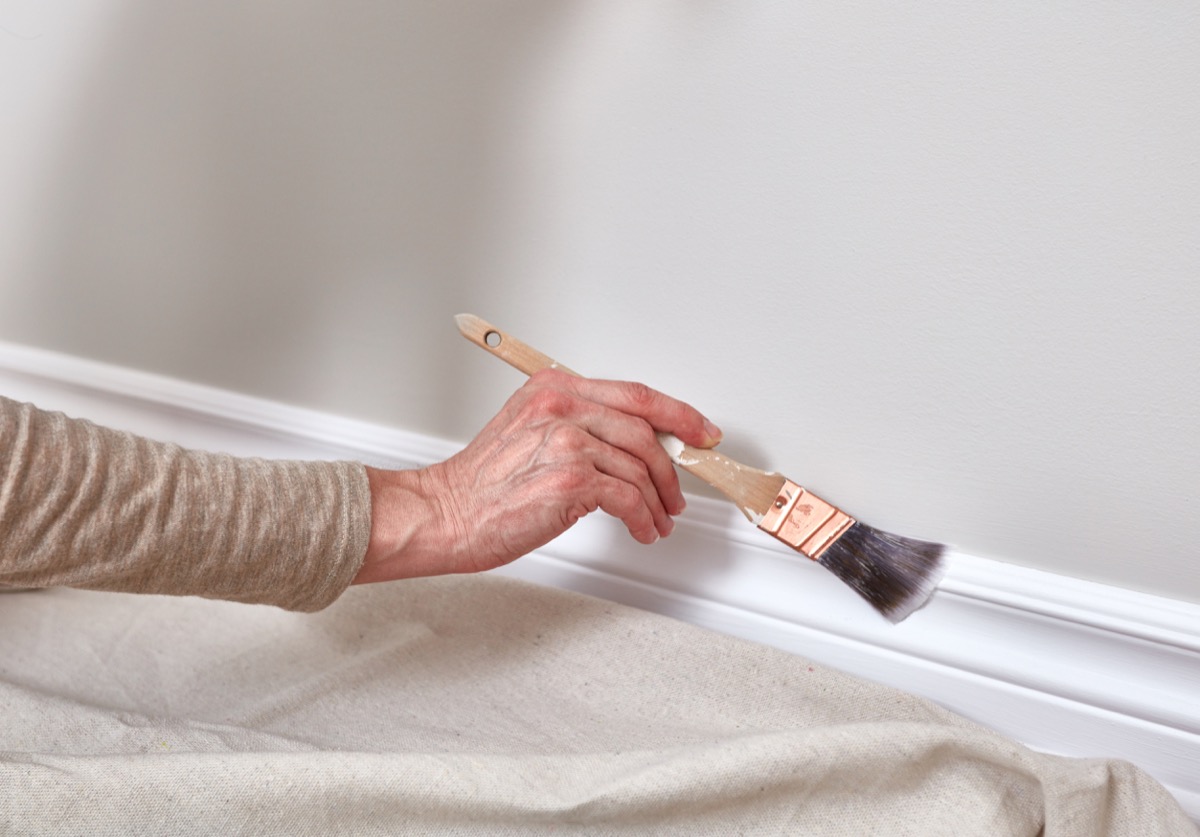The researchers collected data from 63 managers and found that “wearing blue-light filtering glasses is an effective intervention to improve physiological (sleep), attitudinal (work engagement), and behavioral (task performance, organizational citizenship behavior, and counterproductive work behavior) outcomes.” You may have heard about people wearing blue-light glasses while looking at the computer all day, but their ability to help you get some rest is a new development. “Wearing blue-light-filtering glasses creates a form of physiologic darkness, thus improving both sleep quantity and quality,” study co-author Cristiano L. Guarana, assistant professor of management and entrepreneurship at the Indiana University Kelley School of Business, said in a statement. The truth is, blue light is an unavoidable factor in modern life. As an article by Harvard Health explains, humans previously lived in a state where we were lit only by the sun and developed a biological clock—or circadian rhythm—in response. The length of this rhythm varies for each of us, but it is usually around the 24-hour mark (longer for night owls, shorter for early risers). Daylight keeps us aligned with that rhythm, while artificial light can disrupt it. And artificial light with shorter blue wavelengths—which boost attention and suppress the production of sleep hormone melatonin—is especially bad at night. The Harvard researchers even found that blue light suppressed melatonin for twice as long as green light. Blue light is particularly given off by personal electronic devices like laptops, tablets, and smartphones. With the amount of time we are spending on these devices having increased throughout 2020 by as much as two hours per day, anyone struggling to sleep should look at reducing their exposure to blue light—and some new specs could be just the ticket. Read on for more tips on getting some shut-eye, and be sure to ignore these 25 Myths About Sleep That Are Keeping You Up at Night. According to a recent study, using a weighted blanket at night can make you 26 times more likely to experience a 50 percent decrease in insomnia compared to those who don’t use one. You’re also 20 times more likely to completely cure your insomnia by using a weighted blanket. If you’re in the market, experts recommend getting one that’s at least as heavy as 10 percent of your body weight.ae0fcc31ae342fd3a1346ebb1f342fcb According to the Sleep Foundation, “alcohol may aid with sleep onset due to its sedative properties, allowing you to fall asleep more quickly. However, people who drink before bed often experience disruptions later in their sleep cycle as liver enzymes metabolize alcohol.” And for more advice like this, here are 50 Tips for Sleeping Better Tonight, According to Experts. If you have thousands of thoughts spinning in your head at night, you may want to get a journal for your nightstand. A 2018 study conducted by the National Sleep Foundation found that people who spent five minutes writing out a to-do list for the next day fell asleep significantly faster than subjects who wrote about other subject matter. And for advice on the perfect amount of shut-eye, know that This Is Exactly How Much Sleep You Need to Be Getting, Study Says You may think a morning shower gives you the jolt you need, but experts say that holding off on your daily cleanse until the evening can help you doze off much faster. They suggest a 10-minute warm shower before going to bed instead. And for more expert advice delivered straight to your inbox, sign up for our daily newsletter. According to experts, painting your room a color that’s too bright or too dark can take a toll on your ability to sleep soundly. If you want your bedroom to be more calming, “explore neutrals, light shades of aqua, and golds,” celebrity home decorator Shani Moran previously told Best Life. And for another way paint color can affect you, check out Painting Your Bedroom This Color Could Improve Your Sex Life.
